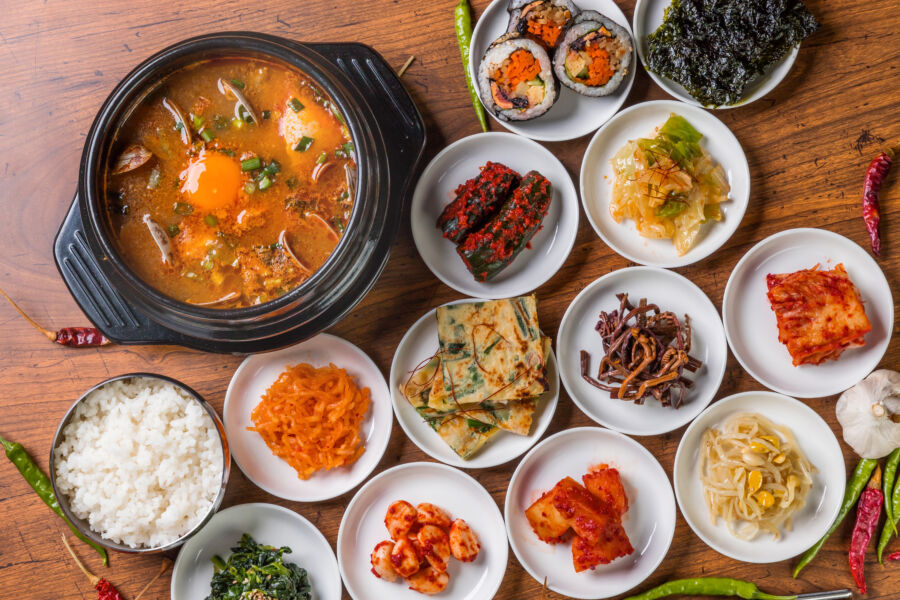
China Trip Cost: Budget-Friendly 7-Day Adventure Under $1000
Planning a trip to China? You’re in for an amazing adventure, but you might be wondering about the costs. A typical trip to China can range from $70 to $850 per day, depending on your travel style and preferences. This covers everything from budget-friendly backpacking to luxury experiences.
China offers a unique blend of ancient history and modern marvels. From the Great Wall to bustling cities like Shanghai, there’s something for everyone. But your costs can vary widely based on where you go and how you travel.
Let’s break down the main expenses you’ll face. We’ll look at options for budget, mid-range, and high-end travelers. This way, you can plan a trip that fits your wallet and your dreams. Get ready to explore one of the world’s most fascinating countries!
Contents
- Key Takeaways
- Determining Your Budget
- Cost Breakdown
- Daily Expenses
- Accommodation
- Hotels and Hostels
- Alternative Lodging
- Transportation
- In-City Travel
- Intercity Travel
- Ridesharing and Taxis
- Food and Dining
- Street Food
- Restaurants and Fine Dining
- Regional Specialties
- Attractions
- Historical Sites
- Cultural Experiences
- Natural Wonders
- Connectivity
- Mobile Networks
- Internet Access
- Shopping
- Local Markets
- Shopping Malls
- More Travel Guides
Key Takeaways
- Trip costs vary widely from $70 to $850 per day based on travel style
- Accommodation and food offer options for every budget
- Planning ahead and choosing local experiences can help save money
Determining Your Budget
Planning a trip to China requires careful budgeting. Let’s break down the main costs and daily expenses you’ll need to consider when figuring out how much to set aside for your Chinese adventure.
Cost Breakdown
When budgeting for your China trip, start with the big ticket items. Flights often make up a big chunk of your travel costs. Prices vary widely depending on your departure city and when you travel.
Accommodation is another major expense. You can find budget hostels for as little as $10 a night or splurge on luxury hotels for $200+. Mid-range hotels typically run $50-100 per night.
Don’t forget to factor in costs for visas, travel insurance, and any tours or activities you want to do. The Great Wall costs about $6 to enter plus $14-20 for transportation. The Forbidden City is around $8.
Daily Expenses

Your daily budget in China can be quite affordable if you’re careful. Street food and local restaurants offer tasty meals for $3-5. Fancier dining options start around $10-15 per person.
Public transportation is cheap – subway rides in major cities cost less than $1. Taxis are pricier but still reasonable at $2-3 for short trips.
Sightseeing and entertainment costs vary. Many parks and temples have small entrance fees of $2-5. Museums are often free.
Set aside some money for shopping and souvenirs too. You can find great deals at markets, but be ready to haggle!
With some planning, you can enjoy China on $30-50 per day as a budget traveler. Mid-range trips run $100-150 daily. Luxury travel starts at $250+ per day.
Accommodation

Finding a place to stay in China can be an adventure in itself. From budget-friendly hostels to luxury hotels, there’s something for every traveler and wallet. Let’s explore your options for a comfy night’s rest in the Middle Kingdom.
Hotels and Hostels
China offers a wide range of hotels to fit your budget. In big cities like Beijing or Shanghai, you’ll find international chains alongside local options. Expect to pay around $70 per night for a mid-range hotel. Budget hotels can be as cheap as $30 a night, but don’t expect too many frills.
Hostels are perfect if you’re watching your yuan. They’re cheap, social, and often in great locations. You can snag a dorm bed for as little as $10-15 per night. Many hostels offer private rooms too, usually at half the price of a hotel.
Booking.com is a great place to start your search. It has tons of options and often offers good deals.
Alternative Lodging
Want to try something different? Consider a homestay with a local family. It’s a fantastic way to experience Chinese culture up close. Prices vary but expect to pay around $20-30 per night.
For longer stays or if you’re traveling with a group, vacation rentals can be a great value. You’ll get more space and a kitchen to cook your own meals. Prices start around $50 per night for a small apartment.
In rural areas, you might find guesthouses or farm stays. These can be super cheap, sometimes under $15 a night. Just don’t expect luxury – they’re often basic but clean and comfy.
Transportation

Getting around China involves various modes of transport, from buses to bullet trains. Costs can vary widely depending on how you choose to travel.
In-City Travel
Public transport in Chinese cities is affordable and efficient. Subway fares typically start at 3-5 yuan (about $0.50-$0.80) for short trips. Buses are even cheaper, with fares around 1-2 yuan ($0.15-$0.30).
Buying a transit card can save you money if you’re staying for a while. These cards work on buses and subways in most major cities.
For longer stays, consider renting a bike. Many cities have bike-sharing programs with rates as low as 1-2 yuan per hour.
Intercity Travel
High-speed trains are a popular way to travel between cities in China. A second-class ticket from Beijing to Shanghai (about 1,300 km) costs around 550 yuan ($80).
Slower trains are cheaper but take longer. An overnight sleeper train can be a good option for longer trips.
Domestic flights can be surprisingly affordable, especially if you book in advance. You might find deals for as low as 400-600 yuan ($60-$90) for shorter routes.
Ridesharing and Taxis
Taxis in China are relatively cheap compared to Western countries. Flag-down rates start at 10-14 yuan ($1.50-$2) in most cities.
Ridesharing apps like Didi (China’s version of Uber) are widely used. They’re often cheaper than taxis and more convenient if you don’t speak Chinese.
For longer trips or day tours, you might want to rent a car with a driver. This can cost 600-1000 yuan ($90-$150) per day, depending on the distance and type of vehicle.
Remember, prices can vary greatly between cities. Beijing and Shanghai tend to be more expensive than smaller cities or rural areas.
Food and Dining

Eating in China is a big part of the trip experience. You’ll find tons of tasty options that won’t break your budget. From quick street snacks to fancy restaurants, there’s something for every taste and wallet.
Street Food
Street food in China is cheap and delicious. You can grab a filling meal for just $2-5. Try steamed buns (baozi) or dumplings (jiaozi) for breakfast. For lunch, get some noodles or fried rice from a food stall. Skewers (chuanr) are perfect for a quick snack. Don’t miss out on egg waffles or stinky tofu for dessert. Street food is safe to eat if you pick busy spots with lots of locals.
Restaurants and Fine Dining
Eating at restaurants gives you more choices but costs more. A casual meal at a local place runs about $5-10 per person. Western-style restaurants are pricier, around $15-25 per meal. For a fancy night out, plan to spend $40-80 per person at a high-end spot. Tipping isn’t expected in China, so that helps keep costs down. Many restaurants have picture menus, making it easy to order.
Regional Specialties
Each area of China has its own special dishes. In Beijing, you must try Peking duck. It’s pricey at $20-30 per person, but worth it for the experience. Sichuan food is known for spicy flavors. Get some mapo tofu or kung pao chicken for $8-12. If you’re in Shanghai, don’t miss out on soup dumplings (xiaolongbao) for $5-8 a basket. In Xi’an, the Muslim Quarter has amazing hand-pulled noodles for just $3-5 a bowl. Trying local foods is a great way to experience Chinese culture without spending too much.
Attractions

China offers a wealth of amazing sights that will take your breath away. From ancient wonders to natural marvels, you’ll find plenty to explore on your trip.
Historical Sites
The Great Wall of China is a must-see attraction. Entry tickets cost about $6, with cable car rides adding $14-20 extra. Plan to spend at least half a day hiking and taking in the views.
The Forbidden City in Beijing, also known as the Palace Museum, charges $8.40 from April to October or $5.50 from November to March. You’ll need 3-4 hours to tour the massive imperial complex.
Don’t miss the Temple of Heaven, where emperors once prayed for good harvests. Tickets run about $4. The stunning architecture and parklands are worth a couple hours of your time.
Cultural Experiences
Catch a breathtaking acrobatics show for $30-50 per person. The gravity-defying acts will amaze you.
Visit a local tea house to sample different varieties and learn proper brewing techniques. Many offer free tastings, but budget $10-20 if you want to buy some tea to take home.
Try your hand at a calligraphy or cooking class. Prices range from $20-50 for a few hours of hands-on fun. You’ll gain new skills and cultural insights.
Natural Wonders
The karst mountains and rivers of Guilin offer stunning scenery for boat tours and hiking. Day trips cost $50-100 per person.
Jiuzhaigou Valley dazzles with colorful lakes and waterfalls. Park admission is about $40 in peak season. You’ll want a full day to explore the hiking trails.
The Yangtze River cruise lets you see the Three Gorges. 3-day trips start around $400 per person. The views are unforgettable.
Remember to book popular attractions in advance, especially during peak seasons. This saves time and often money too.
Connectivity

Staying connected in China requires some planning. You’ll need to navigate mobile networks and internet access options to ensure you can use your devices while traveling.
Mobile Networks
China has three main mobile carriers: China Mobile, China Unicom, and China Telecom. For short trips, you can buy a prepaid SIM card at the airport or in stores. These usually cost around 100-200 yuan ($15-30) and include data and local calls.
If you’re staying longer, consider an eSIM. They’re convenient and let you keep your home number. Prices start at about $3 for 2 days with 500MB of data. For heavy users, unlimited data plans are available for around $8-9 per day.
Don’t forget to unlock your phone before your trip. And make sure it’s compatible with Chinese networks.
Internet Access
Wi-Fi is widely available in China, but it can be slow. Many hotels, cafes, and public spaces offer free Wi-Fi, but you might need to scan a QR code or register to use it.
For reliable internet, get a portable Wi-Fi device. You can rent these at airports or order online. Prices vary, but you can expect to pay about 30-50 yuan ($4-7) per day.
You’ll need a VPN to access sites like Google, Facebook, or Instagram. Download a VPN before you leave home. Some hotels offer VPN services, but it’s best to have your own.
Remember, WeChat and Alipay are crucial for daily life in China. Set these up before your trip to make payments and communicate easily.
Shopping

Shopping in China offers a mix of traditional markets and modern malls. Let’s explore the best places to shop and snag some bargains.
Local Markets
Local markets in China are a shopper’s paradise. You’ll find bustling streets filled with vendors selling all kinds of goods. Silk Road markets in Xi’an offer beautiful fabrics and crafts. In Beijing, hit up Panjiayuan Antique Market for unique souvenirs.
Bargaining is expected, so don’t be shy! Start at 30-50% of the asking price and work your way up. Keep an eye out for fake brand-name goods. Some great buys include:
- Tea sets (50-200 yuan)
- Silk scarves (30-100 yuan)
- Jade jewelry (100-1000+ yuan)
Bring cash and small bills, as most vendors don’t take cards. Watch your belongings in crowded areas.
Shopping Malls
For a more modern shopping experience, China’s malls rival any in the world. You’ll find familiar international brands alongside local favorites. Malls are great for electronics, cosmetics, and designer goods.
Some top malls include:
- Beijing’s Sanlitun Village
- Shanghai’s Super Brand Mall
- Guangzhou’s TaiKoo Hui
You can usually find fixed prices, but you might score discounts during sales. Most malls have English-speaking staff and accept credit cards. Food courts offer cheap eats when you need a break.
Look for China-exclusive items from global brands. They make great gifts! Expect to pay similar prices to home for international brands. Local brands are often much cheaper.



